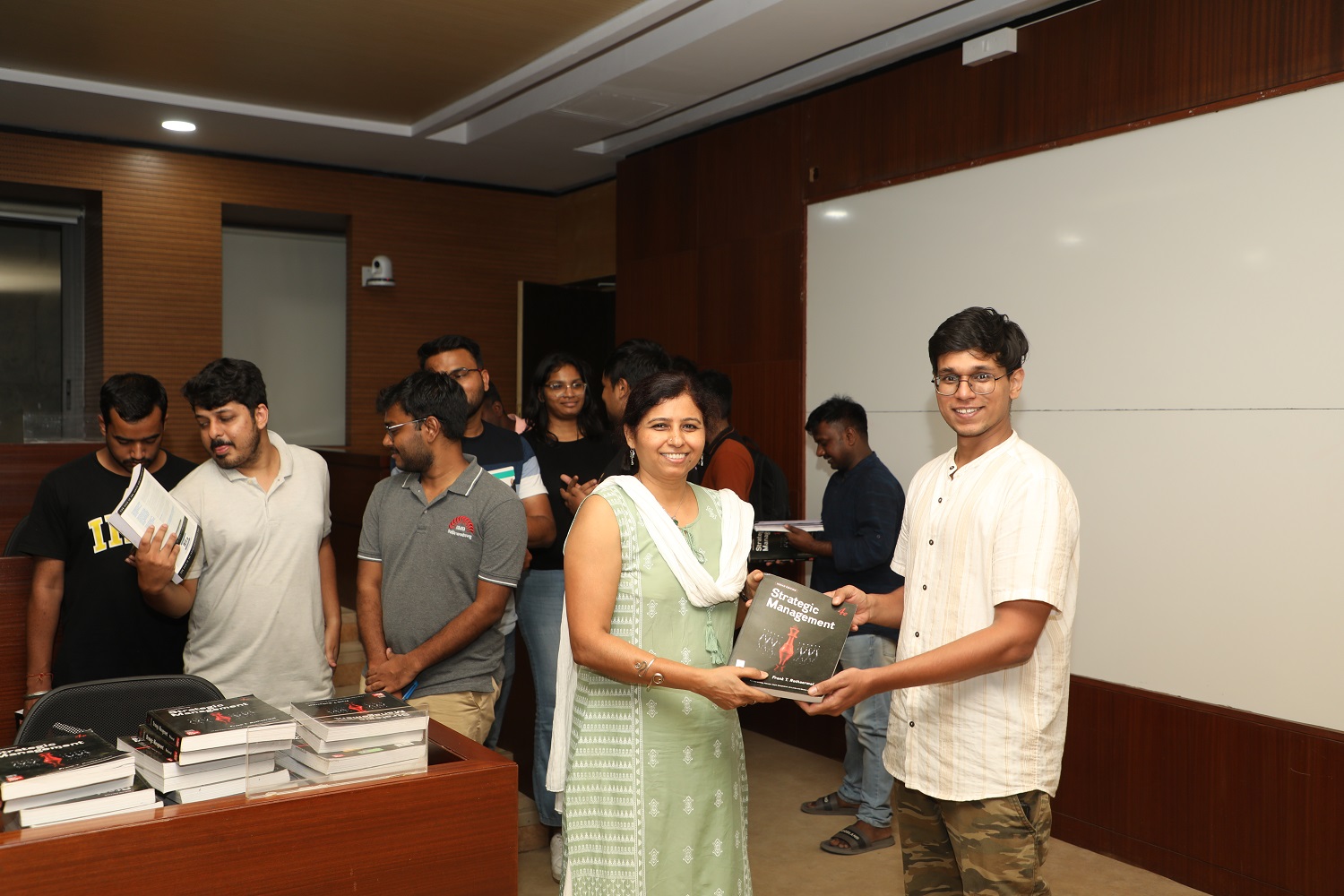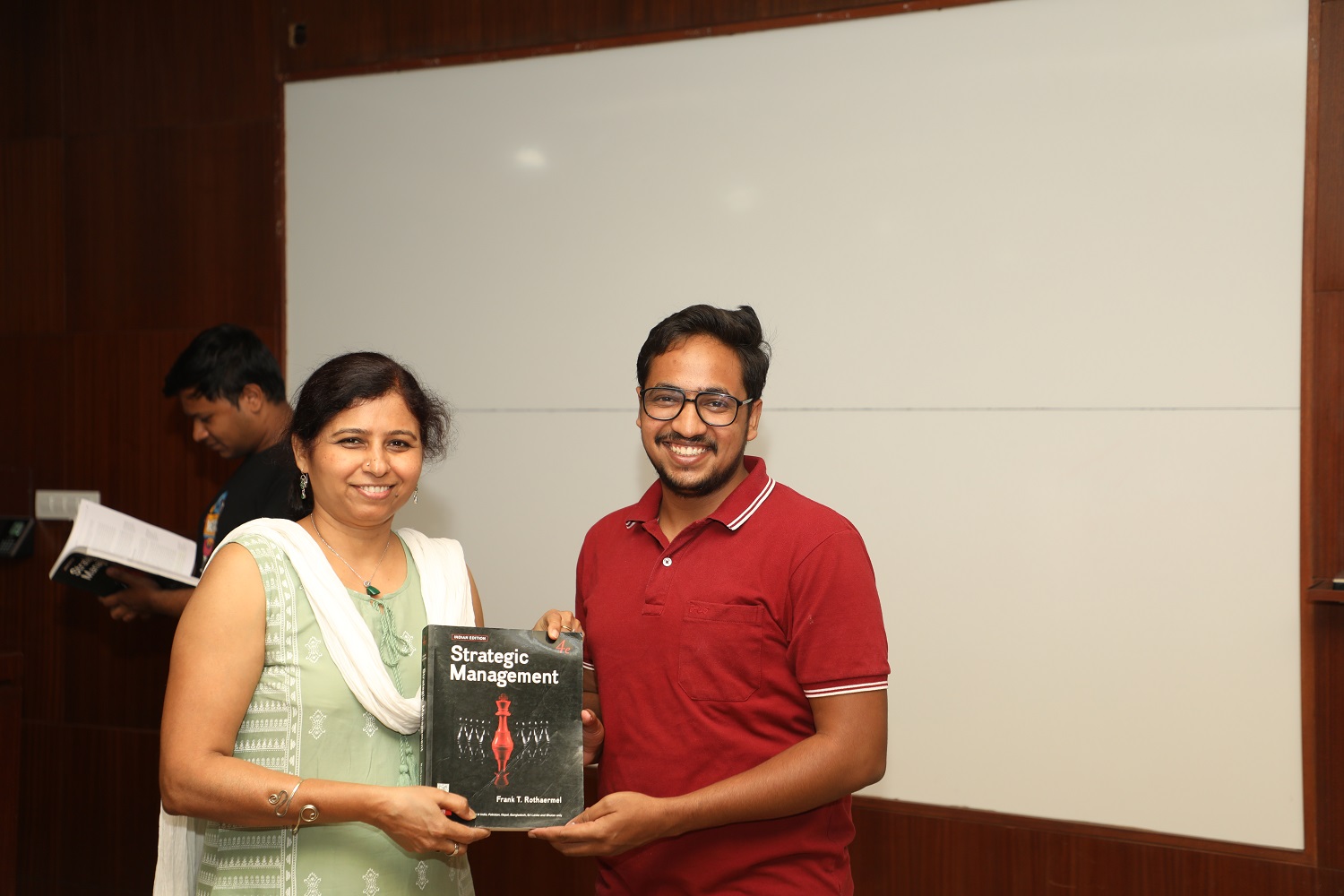IIMB’s commitment to sustainable academia through Textbook Reuse
At the Indian Institute of Management Bangalore (IIMB), sustainability is not just a principle; it is a practice integrated into everyday academic life. The textbook Recycle and Reuse Initiative reflects the institute’s commitment to reducing environmental impact through mindful resource use.
How It Started: From Choice to Change
The Textbook Recycle and Reuse campaign at IIM Bangalore launched in 2023, under the “Beyond Books at B” campaign, a collaboration between IIMB’s Sustainability Taskforce and the Environment & Sustainability (ENS), a student-run club that promotes sustainability activities amongst IIMB’s students.
This initiative aimed to reduce textbook paper waste without compromising academic quality. Over time, what began as a modest choice evolved into a broader campus-wide effort, supported by both students and faculty.
In the academic year 2024–25, findings have revealed the reuse of 311 book units and an estimated savings of 349.3 kg of paper. This effort contributed to an estimated 1,089 kg of CO₂e emissions avoided, significantly reducing the environmental impact associated with paper production and disposal. In addition, paper waste of 20,156 kg was segregated for recycling during the same year. Over the next 3–4 years, the “Beyond Books at B” initiative is expected to provide complete course coverage through recirculated books for an entire batch.
Beyond resource conservation, the initiative has helped embed a culture of academic circularity within the IIMB community. Students who contributed to IIMB’s sustainability efforts by adopting used books were formally recognized as ‘Green Warriors’ by IIMB Sustainability Taskforce as an appreciation of their role in advancing climate-conscious practices in higher education.
Expansion and Institutional Support
By 2025, the initiative gained formal support and was implemented at scale. As part of this program, students now receive two out of six core textbooks as reused copies, carefully preserved from previous batches. This model encourages long-term reuse and reduces the need for purchasing new books every academic year.
Tangible Impact: Reducing Waste
Over the last four years, IIMB has reported a 42% reduction in annual consumption of textbooks and associated paper waste in the flagship 2-year MBA programme. This remarkable figure reflects a shift not just in administrative planning, but in campus culture itself. The initiative has inspired students and faculty to actively participate in material conservation, often donating books and exploring mechanisms to reduce other types of resource consumption as well.
A Digital Push and Smarter Publishing
Complementing the reuse initiative is a set of smart interventions to further reduce paper usage. Course packs, once bulky printouts, have now transitioned to digital formats wherever feasible. IIMB has also engaged directly with publishers to create consolidated versions of textbooks, combining multiple required chapters into a single volume. This effort minimizes unnecessary printing while ensuring curriculum needs are met.
The Bigger Picture
Sustainability at IIMB is no longer a niche conversation; it’s a lived experience. The Textbook Recycle and Reuse program is a small but significant piece of a broader institutional commitment to environmental stewardship. Through nudge-based approaches, student engagement, and policy shifts, IIMB is not only reducing its paper footprint but also setting an example for academic institutions across the country.
A Sustainable Academic Model
Through a combination of behavioural nudges, administrative/logistics planning, and digital innovation, IIMB has successfully embedded sustainability into its academic framework. The Paper Recycle and Reuse Initiative serves as a model for institutions aiming to balance academic rigor with environmental responsibility.
As the initiative continues to evolve, it stands as a clear example of how small changes, when implemented thoughtfully, can lead to a measurable and meaningful impact.
